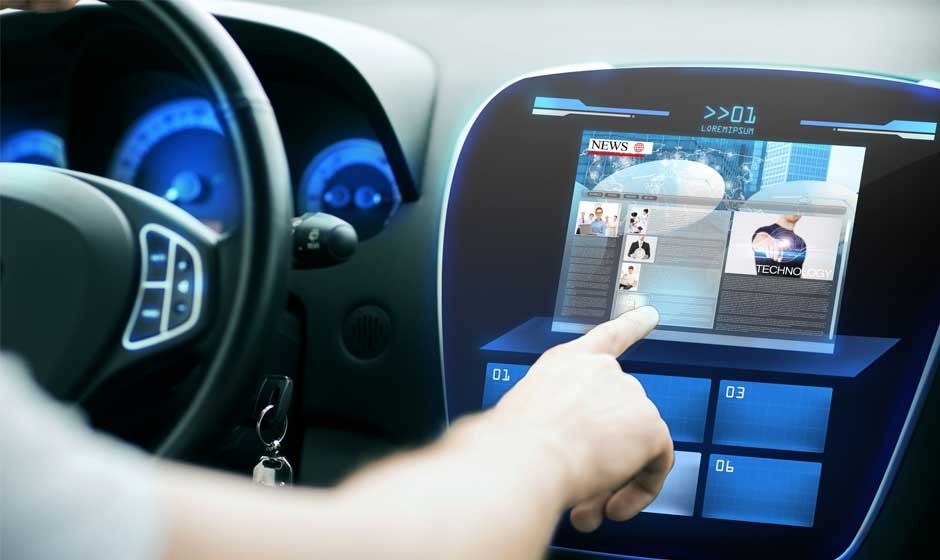Introduction to Modern Vehicle Technology
In today’s fast-paced world, the evolution of modern vehicle technology is fundamentally transforming how we perceive driving. Whether you are hunting for a new ride from Central Florida Dodge dealers or looking to spruce up your current wheels, technological advancements are making our commutes safer, more efficient, and remarkably comfortable. Unsurprisingly, integrating connectivity features and sustainability options has become central to both automakers and consumers in their pursuit of a superior driving experience.
As automobiles continue to evolve, fans experience safety features and comfort improvements like never before. Intelligent dashboards, fuel-efficient engines, and technological advancements have reshaped the automotive industry. From cutting-edge safety technologies to eco-friendly features, these innovations are influencing our path. To gain a deeper understanding of the latest trends and technologies transforming transportation, credible sources focused on transportation technology provide essential insights.
Connectivity Features for a Seamless Journey
In an era when maintaining connections is crucial, cars with seamless connectivity options are gaining increasing favor. Whether managing playlists, making hands-free calls, or receiving real-time traffic updates, these features facilitate a smooth and enjoyable drive. Car dealerships in Lakeland, FL, are increasingly offering vehicles equipped with cutting-edge technologies, ensuring drivers can access the latest advancements. Integrating such technologies ensures that drivers and passengers remain connected at all times, irrespective of location, which is now a critical component of a complete driving experience.
Safety Innovations on the Road
Ensuring road safety has become paramount in today’s automotive engineering. With advanced driver-assistance systems (ADAS), the industry has reached new heights in vehicle safety. Features such as automatic emergency braking, lane departure warnings, and adaptive cruise control are becoming increasingly standard.
These systems strive to prevent accidents by providing drivers with immediate alerts and assistance, facilitating faster reactions. According to the National Highway Traffic Safety Administration (NHTSA), these technologies significantly minimize the likelihood of accidents, contributing to a safer driving experience for everyone.
Efficiency and Sustainability in Vehicles
As the global push towards environmental consciousness intensifies, hybrid and electric vehicles have rapidly gained traction within the automotive sector. These vehicles signify the industry’s commitment to reducing emissions and enhancing fuel efficiency. Notably, the integration of sustainable technologies, such as add-on solar panels and regenerative braking systems, continues to grow. The U.S. Department of Energy highlights the crucial role these vehicles play in reducing the carbon footprint and lessening our reliance on fossil fuels, offering consumers eco-friendly options that align with their sustainability goals.
Comfort Features Redefining Travel Experience
In tandem with the technological advancements in modern vehicles, attention to comfort has seen significant improvements. From advanced infotainment systems to climate-controlled seating, vehicles today are engineered with top-notch comfort in mind. Features such as ambient lighting and noise cancellation create an oasis of peace within the car, minimizing external disruptions and enhancing passenger relaxation. As technology continues to evolve, so does the quality of comfort, ensuring that each journey is as pleasant as the destination itself.
Autonomous Vehicles: The Future in Motion
Autonomous vehicles represent one of the most tantalizing prospects of modern vehicle technology. As the idea of self-driving cars transitions from a science fiction dream into reality, their potential to revolutionize urban transportation is compelling. Self-driving cars offer unparalleled convenience, safety, and efficiency. Nonetheless, many obstacles remain to be addressed, including regulatory issues and the need for more advanced technology.
Despite this, the promising capabilities of autonomous vehicles in traffic management and urban planning make them a highly anticipated evolution in road transportation.
Challenges and Considerations
Despite the numerous benefits that modern vehicle technologies offer, they are not without their challenges. Cybersecurity and privacy are significant concerns in the age of connected cars. As vehicles continue to collect and store information, robust security protocols are essential to protect against potential intrusions.
Moreover, developing the necessary infrastructure to support these technologies is crucial. As consumers and industries work to adopt these advancements, cooperation among stakeholders will be essential in addressing these challenges and realizing the full benefits of these innovations.
Conclusion
Ultimately, modern vehicle technology is reshaping the future of driving with a focus on safety, connectivity, sustainability, and comfort. While challenges do exist, the continuous development of these technologies promises to create a driving experience that is more connected, efficient, and enjoyable for everyone. As we look forward to the future, the relentless pursuit of innovation ensures that the evolution of vehicle technology will continue to enhance our travel experience.










